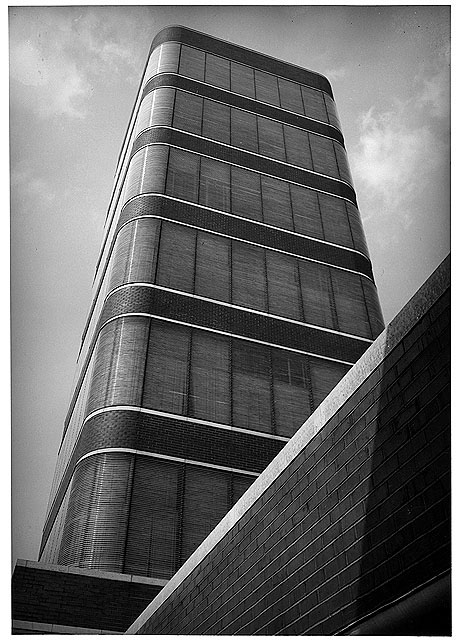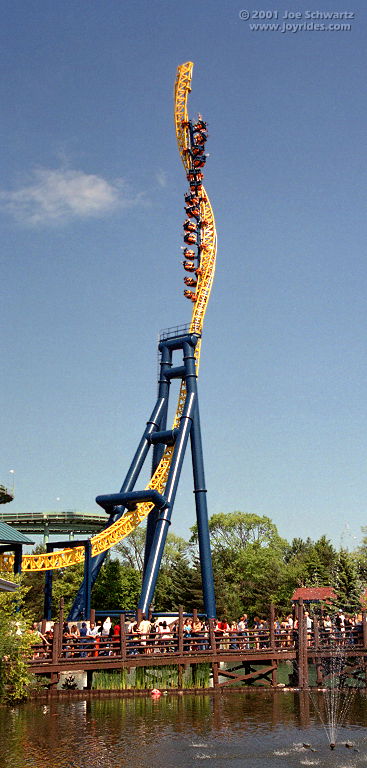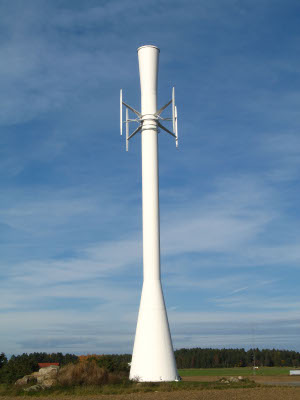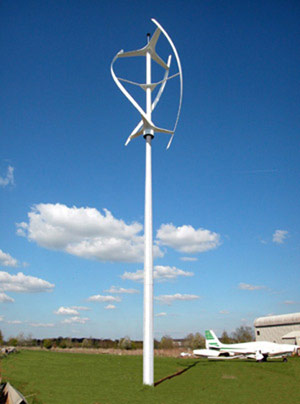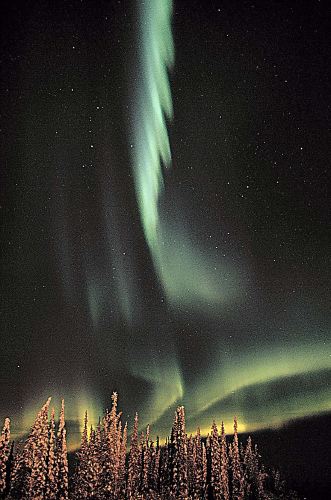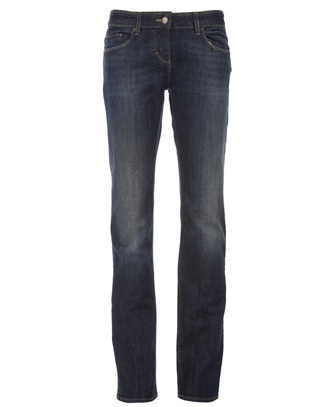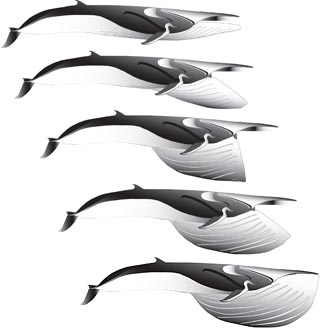| LITR 4368 Literature of the Future Homepage / Syllabus Course webpage: http://coursesite.uhcl.edu/HSH/Whitec/LITR/4632/default.html Instructor:Craig White Office: 2529-7 Bayou Phone: 281 283 3380 E-mail: whiteC@uhcl.edu Office Hours: M, Th 12-1, 6-6:30, and by appointment |
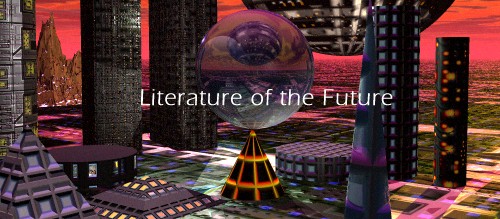 Graduate Seminar: Literary & Historical Utopias Syllabus may change with fair notice to students. |
 Summer 2015, 1st 5-weeks M,T, & Th 9am-noon, Bayou 1439 |
Course TextsScriptural texts: esp. Genesis (Creation) and Revelation (Apocalypse) H. G. Wells, The Time Machine (1895) Octavia Butler, Parable of the Sower (1993) Future Primitive: The New Ecotopias, ed. K. S. Robinson (1994) Virtually Now: Stories of Science, Technology and the Future, ed. J. Schinto (1996) + online texts & handouts--see reading schedule below |
Graded Work Reading quizzes (app. 10%, more if results are far below average.) Midterm (In-class or email, 25 June; 30-40%) Final Exam (9 July, in-class or email; 40-50%) Class Presentations, participation, attendance (app. 10-20%, graded silently) Informal presentations: Discussion-Starter & Web-Highlighter Class preparation and participation Attendance: One free cut allowed without comment or penalty. Two or more absences or partial absences, even with good excuses, lower final grade, potentially seriously. Grades are not computed mathematically; percentages indicate only assignments' approximate relative weight. Only letter grades are given. Pluses and minuses may appear on component and final grades. |
 |
Course Objectives including essential terms |
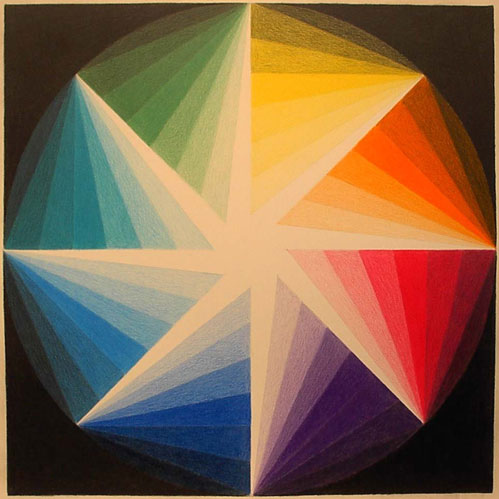 |
(Objectives 1-5 are central themes for the midterm and final exams. As learning outcomes, you are expected to identify and use these terms or concepts in relation to each other and course texts. Objectives 6-9 are themes recurring throughout discussions, lectures, and readings that students are invited to develop in presentations and exams.)
|
Objective 1 Narratives of the Future: decline or progress? |
 |
1. To identify, describe, and criticize 3 standard narratives or stories humans tell about the future:
(linear time)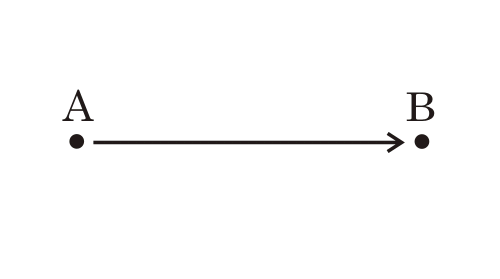 |
1a.
Creation /
Apocalypse (= Millennium, end-times, decline, etc.) human time scale: hundreds > thousands of years |
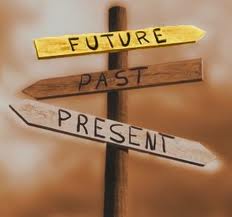 |
![]()

 |
1b.
Evolution cosmic / geologic time scales: millions, billions of solar years, galactic years |
   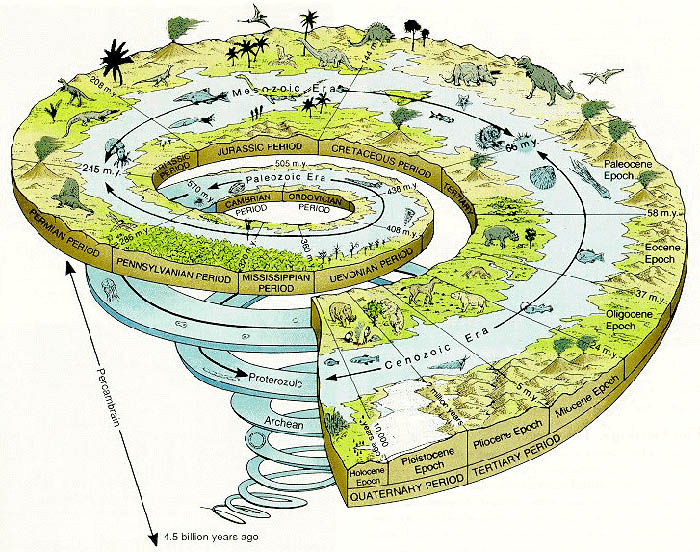 enlarge enlarge |
![]()
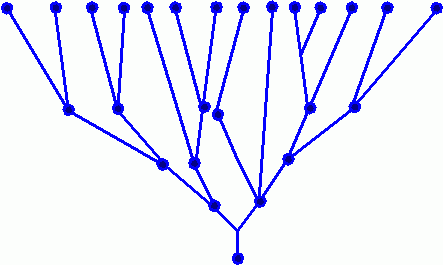 |
1c. Alternative Histories & Futures |
 |
 |
 |
 |
![]()
1d. Relate future narratives to traditional narrative genres & corresponding figures of speech.
-
narrative: story, plot; people or other agents acting and speaking together through time; narrative as sequence of symbols.
-
traditional narrative genres: comedy, tragedy, satire, & especially romance (but not just love-romance)
-
corresponding figures of speech: esp. irony and metaphor / analogy.
![]()
| Objective 2—Visions / Scenarios of the Future |
2. To identify, describe, and criticize typical visions or scenarios of the future (seen from 2013).
a. high tech; virtual reality—slick, cool, unreal, easy with power (+ cyberpunk style)
b. low tech; actual reality—rough, intimate, messy, hungry, warm, real
c. utopia / dystopia / ecotopia—perfectly planned worlds / dysfunctional world / + ecology
d. off-planet / alien contact—exploring and being explored
![]()
Objective 3—Narrative & Symbol
3. To comprehend basic theories of narrative, plot, or story + narrative's relation to symbol.
- Humans are story-telling creatures who live, react, and decide in narratives that express our symbolic fears and desires.
- Narratives are both individual and collective; literary and historical—very inclusive concept.
- Four traditional "narrative genres": comedy, romance, satire, tragedy, plus combinations.
- The dominant popular narrative for literature of the future and especially science fiction is "romance."
- Symbol as a mental function of substitution or creation of meaning.
- The Sublime as an aesthetic of rapid, apocalyptic change.
![]()
Objective 4—Genres
4. To identify subject genres of future literature
- prophecy
- science fiction, sf, speculative fiction, sci-fi, fantasy; hard & soft sf + sub-genre: cyberpunk (virtual reality plus real-world actuality)
- utopias, dystopias, ecotopias
- Also, from obj. 3, attention to the narrative genre of romance
![]()
Objective 5—Teaching, Learning, Testing
5. To articulate teaching, learning, & evaluation methods for special course content
- Instructor and students share standard knowledge + new contexts or applications; students react to first-time readings, as instructor welcomes extensions of previous learning.
- Exams require basic comprehension and expression of course objectives, but excellence occurs when students extend or refresh learning with fresh examples, insights, and expression.
- Can new sections of courses build on previous sections' accomplishments? Model Assignments
- Correlate traditional literary themes like mimesis and entertainment & education, and traditional teaching practices like critical thinking, with special texts and subjects.
![]()
Secondary Course Objectives
(Recurrent themes or issues you may develop in exams and presentations)
6. Is the future "written" (i. e., set, fixed, programmed, and usually apocalyptic) or "being written" ("open-ended" and usually evolutionary)?
7. To see literature of the future as reflections of the present in which it is written. (How much change from normal can readers process?)
8. To note literary strategies and problems such as how to make the future both familiar and exotic. (Or “comforting / challenging”; “friendly / unfriendly”; “warm / cold”). See Wells's Law.
-
How do you end a story about the future?
9. To distinguish distinct temporal dimensions of the future
-
Near future; short-term; day-after-tomorrow (often dramatic or apocalyptic change, such as alien contact)
-
Deep future, long-term (usually evolutionary change involving changing environments and adaptations)
-
Alternative depths of future between, beyond, parallel, or skew
 |
 |
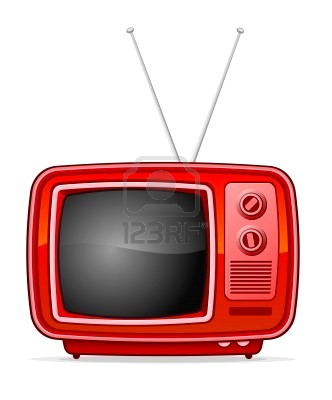 |
![]()
| Reading & Presentation Schedule:
LITR 4368, Summer 2015 |
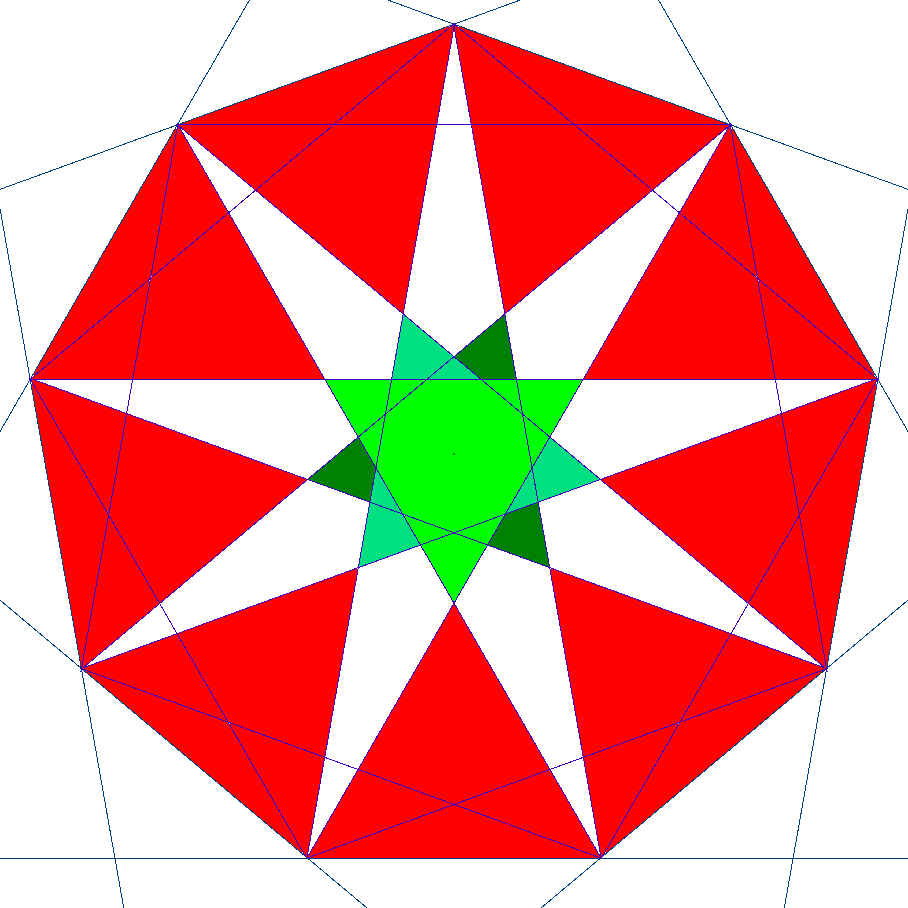 |
Initial guide to course anthologies: BC = Burning Chrome; FP = Future Primitive: The New Ecotopias ed. K. S. Robinson (1994); VN = Virtually Now: Stories of Science, Technology and the Future
![]()
|
Readings: Begin Scriptural Texts of Creation & Apocalypse terms: decline or progress literature entertains and educates symbols and narratives |
Agenda: welcome,
syllabus, website, daily windows |
|
|
Discussion Questions: Reading religious texts as literature? How does anyone read scripture? What attitudes toward Biblical Creation & Evolution? Genesis as Origin Story / Creation Story: familiarity with genre? How does the Creation story in Genesis set up Revelation? |
 |
![]()
 |
Creation / Apocalypse |
 |
|
Readings: Continue Scriptural Texts of Creation & Apocalypse terms: Millennium / Apocalypse, prophecy, sublime, symbol Discussion-starter: Zach Mayfield Web-highlighter (midterms): instructor terms: images, symbols, genre, utopia, narrative genre, romance narrative |
Agenda:
emails, presentations quiz on reading assignments ways to study Literature Discussion-starter: Zach
symbols & narratives |
|
|
Discussion Questions: Reading assignment: See note to Index to Scriptural Texts of Creation & Apocalypse; also review term-sites for narrative, symbols, and narratives of the future. Formal questions for Literature of the Future midterm: 1. Creation-Apocalypse narratives exemplify the linear model of time, but what parts of today's texts suggest a more complex model or dimensions beyond "Point A to Point B?" 2. Narrative genres: How does the plot-pattern of Revelation resemble the plot narrative of a romance? Pay attention to the gradual revelation of the central character of Jesus—how does he appear? How is he like a hero in a romance-rescue story? How are the Satanic figures like the villain? (instructor will lead) 3. Symbols are among the most striking and obvious devices of apocalyptic literature, e.g. popular references to "666," "The Beast," "Anti-Christ," "The Whore of Babylon," "Signs in the Heavens," etc. What can we learn about symbols' functions in literature generally from their power in apocalyptic literature? Special questions for End-Times literature and reading or teaching scripture as literature. (We can't get to all of these, but they suggest millennial literature's many points of interest for literary and cultural criticism.) 4. If Revelation and other apocalyptic texts are among the most popular parts of the Bible, why? What literary appeals? (<in contrast to appeals to faith, religious belief, etc.) How does Revelation seem different from other Biblical or scriptural texts like the Gospels? (Worth remembering that Eastern Orthodox churches don't include Revelation in the Bible.) 5. What impulses for social or personal change, or what social consequences, result from apocalyptic texts and thought? How does apocalyptic thinking influence attitudes toward decline or progress? 6. Jesus was crucified around 30-36AD, and the Book of Revelation was written between 70 and 95AD. Matthew 24.34 records Jesus saying, "This generation shall not pass, till all these things be fulfilled." What social consequences to perennial belief that "ours is the last generation?" |
 |
![]()
 |
Apocalypse > Evolution |
 |
|
Readings: Parable of the Sower (read app. half) optional reading: brief bio of Octavia Butler (pre-mortem [2006]) & Discussion-starter: Cyndi Perkins Future-vision presenter: Michael Bradshaw |
Agenda: presentations apocalypticnarrative > symbols (translation, interpretation) quiz discussion: Cyndi prsn: Michael
apocalyptic music: Carl Orff, Carmina Burana |
|
|
Discussion Questions:
1. Conclude Apocalyptic
scriptures: upsides / downsides of
interpreting Scripture as literary text?
Attractions / detractions of apocalyptic
narrative? 2c. Science fiction is not just science but also fiction (see genres): How is Parable fictional in representational form, and how is its narrative romance? (instructor will lead) 2d. Lauren also develops her own theology--compare, contrast her father's Baptist belief. 3. Compare biblical apocalypse and environmental apocalypse? |
 |
![]()
|
Monday, 15 June: apocalypse and evolution Readings: Parable of the Sower (complete) Discussion-starter: (Parable): Nicole McDonald Future-vision presenter: Sarah Hurt Instructor's presentation: Octavia Butler, Parable of the Talents (1998) |
Agenda: midterm & web resources > apocalyptic narrative preview Butler later in summer
quiz
Parable of the Talents
future
vision: Sarah Hurt evolution + assignments |
|
|
Discussion Questions: 1. Continue comparisons with Genesis / Revelation and other apocalyptic texts. Does Lauren qualify as a "prophet?" Earthseed as prophecy? Earthseed community as utopia? (cf. heaven at end of Revelation) 2. Discuss blending of apocalypse and evolution in Parable of Sower (and later texts like Time Machine). 2a. How are both present? How account for co-presence instead of co-exclusion? 2b. Where do they diverge? Where do they meet? Can you reconcile seeing the world as both apocalypse and evolution, rather than one excluding the other? If so, how? 2c. What are the signs, symbols, or keywords of creation-apocalypse and evolution? 3. Broadly, how does Parable of the Sower succeed (or not) in making you care about the future? Or does it just make you want to buy guns, hoard gold, hide, and distrust anyone who's not in your family or church? 4. Science fiction and many other forms of popular literature do not age well. Parable of the Sower is now 20+ years old. How out of date is it already? How much closer are we to its time-frame? If it survives, why? What literary qualities make it somewhat timeless or classic? |
 |
![]()
 |
Evolution |
 |
|
Readings: "Stone Lives" (handout) and "Bears Discover Fire" (FP 17-28) Discussion-starter: Kasey Akin Future-vision presenter: Nina Shaver Web-highlighter (midterms): Haley Stilwell |
Agenda:
Science fiction; Time Machine
assignments |
|
|
Discussion Questions:
1. What key
terms or ways of thinking signal
that these stories operate in a world built on on
evolutionary premises? (Consider
terms or ideas like change, adaptation, survival, + plenty of animal
characters and symbols) 3. compare / contrast
apocalyptic narrative |
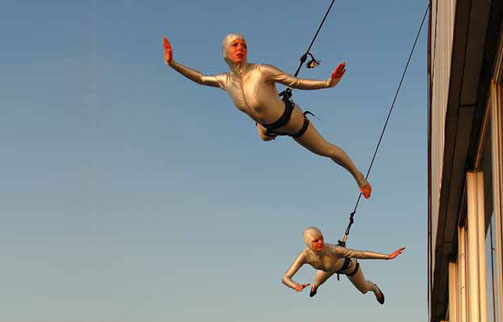 |
![]()
|
Readings: "Somebody up there Likes Me" (VN 208-237); begin The Time Machine (through ch. 5). Discussion-starter: instructor Future-vision presenter: Vicky Webb
|
Agenda: assignments / alternative futures midterm updates + topic discussion assignment midterm web highlights: quiz [break] Time Machine / Somebody discussion: |
|
|
Discussion Questions: 1. H.G.
Wells is the greatest historic science
fiction writer. What qualities distinguish his style? What models
does he create for
science fiction
in terms of action and characterization? What mix of science and
fiction? |
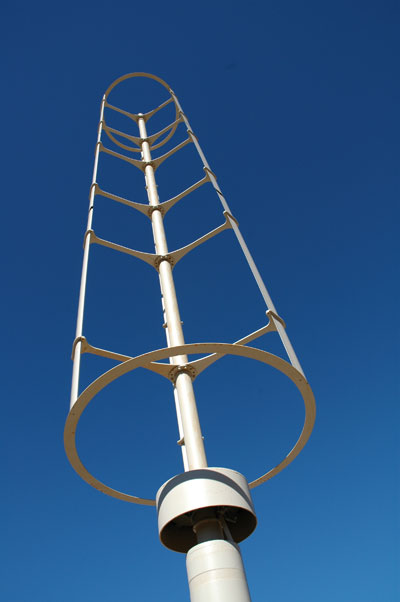 |
![]()
 |
Evolution > Alternative Futures |
 |
|
Monday, 22 June (transition from evolution to alternative futures) Readings: conclude The Time Machine (ch. 6 through epilogue); Bruce Sterling & Lewis Shiner, "Mozart in Mirrorshades" (handout) Discussion-starter: Michael McDonald Future-vision presenter: Sarah Hall |
Agenda:
midterm review; Essay 2 topic discussion
Wells
"Mozart" |
|
|
Discussion Questions:
2. Late in novel, very deep future--what storytelling challenges? (evolution narrative)
3. Summarize science fiction style, problems or
issues with "classic science fiction." How does Wells survive
as "classic sf" when so little sf does? "Mozart in Mirrorshades":
Begin Alternative futures 1.
Look for key terms in quantum
& temporal physics: probability, time holes, parallel worlds
(i.e., alternative histories & futures) 3. How does "Mozart in Mirrorshades" exemplify sf as a way to make a topic like
alternative futures friendly, non-threatening, or accessible to average readers |
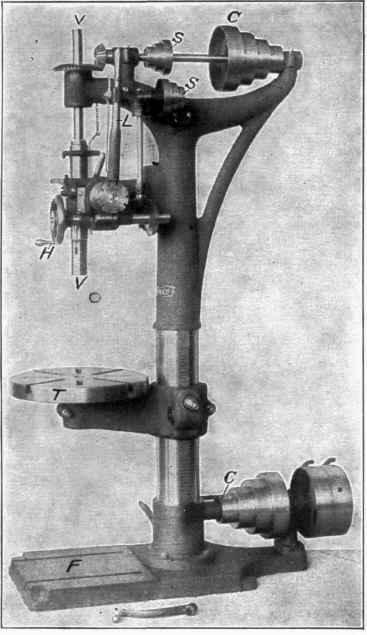 |
![]()
|
Readings: "Garden of Forking Paths"; William Gibson, "The Gernsback Continuum" (BC); "Better Be Ready 'bout Half Past Eight" (VN 22-47) Web-highlighter (midterms): |
Agenda:
Literature of Ideas 6, 19,
26, 42; aphorism
|
|
|
Discussion Questions:
1. How successful is "Garden of Forking Paths" as
Literature
of Ideas? Compare "Gernsback" & "Half Past Eight" 1a. More specifically, how convincingly does it represent or make
you feel the possibility of
Alternative Futures? 2. Except in "Garden," observe scientific background for
alternative futures, esp. quantum physics as "probability" 3. What images of alternative futures, besides "Garden of
Forking Paths"---branching tree? 4. What attractions, repulsions to alternative futures,
compared to apocalyptic and evolutionary narratives? |
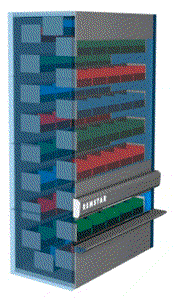 |
![]()
| Thursday, 25 June: midterm (instructor keeps office hours; attendance not required; email midterms due by Friday noon, 26 June) |
![]()
Visions / Scenarios of the Future
|
Monday, 29 June: high-tech future, cyberpunk literature Readings: William Gibson, "Johnny Mnemonic" (BC); William Gibson, "Burning Chrome" (BC 168-191); Richard Goldstein, "The Logical Legend of Heliopause and Cyberfiddle" (VN 159-180). Discussion-starter: Alejandro Renteria Future-vision presenter: Karin Cooper
|
Agenda:
midterm > final + office hours |
|
|
Discussion Questions:
1. What like / dislike about cyberpunk and
why? 1a. Attraction-repulsion of high-tech future?
Consider organic / non-organic; actual
/ virtual
reality. 2. How identify cyberpunk style? William
Gibson as "father / founder / leading stylist of
cyberpunk," influential sf style in past generation.
(associated terms: high-tech,
virtual reality, cyberspace) 3. What about Gibson's style makes literary sorts acknowledge him as a real writer? (most sf writers are competent but indifferent to style, more interested in ideas, action--cf. Bernstein, "Logical Legend"). Pay special attention to extended metaphor. 4. Problems with cyberpunk?
|
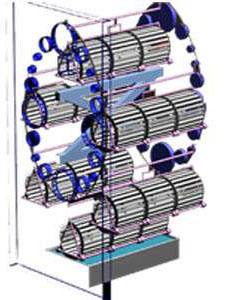 |
![]()
|
Tuesday, 30 June: low-tech: traces of organic human nature and traditional culture in high tech world Readings: "The Onion and I," (VN 8-21)."Drapes and Folds," (VN 126-139)."Speech Sounds"(VN 91-108). Discussion-starter: Liz Davis Web-highlighter (final exams): Future-vision presenter: Cyndi Perkins |
Agenda: assignments; utopia quiz discussion: web highlights: |
|
|
Discussion Questions: 1. If you didn't like the cyberpunk / high-tech / virtual
realities stories, what alternative values or appeals do these
low-tech stories offer? |
 |
![]()
|
Thursday, 2 July: ecotopia Readings: K. S. Robinson, “Introduction” to Future Primitive; "Chocco" (FP 189-214); "House of Bones" (FP 85-110) Presentation: Hannah Wells, LITR MA student on utopias / dystopias Discussion-starter: instructor Future-vision presenter: Melissa South (Waterworld, 1995) |
Agenda: assignments; cosmos quiz Le Guin story in Future Primitive discuss readings Chocco break + evaluations House of Bones (Obj. 3; romance) prsn: |
|
|
Discussion Questions:
1.
What is
utopian
or potentially dystopian about
"ecotopia?" 3. What are the urgencies
and difficulties of discussing
population, climate? Does science fiction provide a way to discuss?
What metaphors enable us to imagine a sustainable future? 4. Why is it difficult to write stories that
make people care for the environment? What inherent problems with
ecological literature? ecology requires collective responsibility
for shared world with no escape--must avoid apocalypse most stories require individual heroes and simple
solutions or escape; apocalypse no problem as long as someone else takes
the heat |
 |
![]()
|
Readings: "Hinterlands" (BC 58-79); "They're Made out of Meat," (VN 69-72)."The Poplar Street Study" (VN 140-148) Discussion-starter: Shelby Hollen Future-vision presenter: Ashley Idema |
Agenda: new earth-like planets; Chinese astronauts land final exam prsn: quiz [break] discuss alien-contact fiction (obj. 2d) Independence! |
|
|
Discussion Questions:
1. What issues about "our future in space"
do our readings raise?
4. How successfully do the stories get beyond the "War of the
Worlds" model seen in Independence Day
or other standard "Earth vs. Aliens" movies in which aliens automatically
appear as apocalyptic terrorists? General pop-culture questions: 5. Since aliens probably don't exist but are
constantly represented in popular culture, what purposes do they serve
for us? Why do we prefer stories about aliens to stories about our
environment? 6. What dimensions of time or the future do aliens
represent? |
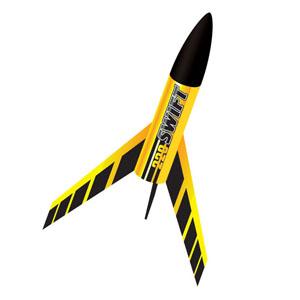 |
![]()
|
Readings: Ursula K. Le Guin, "Newton's Sleep" (FP, 311-338); "The Belonging Kind" (BC 43-57) Discussion-starter: Vicky Webb Future-vision presenter: Ozzy Martinez |
Agenda: new earth-like planets; Chinese astronauts land
prsn: quiz [break] discuss alien-contact fiction (obj. 2d)
|
|
|
Discussion Questions:
1. What issues about "our future in space"
do our readings raise?
4. How successfully do the stories get beyond the "War of the
Worlds" model seen in Independence Day
or other standard "Earth vs. Aliens" movies in which aliens automatically
appear as apocalyptic terrorists? General pop-culture questions: 5. Since aliens probably don't exist but are
constantly represented in popular culture, what purposes do they serve
for us? Why do we prefer stories about aliens to stories about our
environment? 6. What dimensions of time or the future do aliens
represent? |
 |
Thursday, 9 July final exam (in-class or email); instructor holds office hours 9am-12noon; email exams due by Friday noon, 5 July.
![]()
 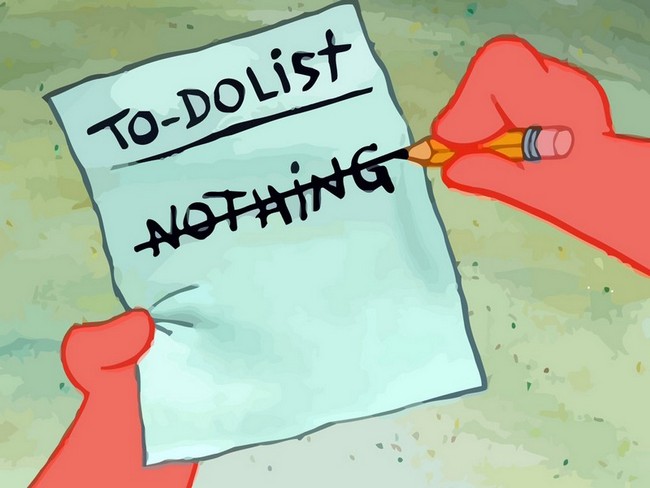 |

Laura Miller, 2012 review of Elaine Pagels, Revelations
Nassim Nicholas Taleb, "The Future will not be Cool"
Michael Lind,
"Stop Pretending Cyberspace Exists," Salon.Com 12 Fe
"Why are Birthrates Falling
around the World? Blame Television

Copyright © 1995 University of Houston - Clear Lake
2700 Bay Area Blvd.
Houston, TX 77058
